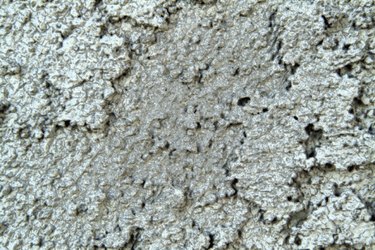
Living in a rental property means that you are responsible for its daily maintenance. Your landlord is responsible for ensuring the safety and well-being of all tenants. When you find mold in your home, you should contact the landlord immediately. Connecticut law does not specifically mention mold but does require the landlord to make your home habitable, which is what you need to keep in mind.
Considerations
Video of the Day
According to the Connecticut General Assembly, tenants have the right to sue their landlord over mold, provided that the mold caused damages. Tenants may argue that the landlord was negligent in not noticing the mold problem, telling tenants about the mold or fixing the mold problem if the tenants contacted him. Tenants may also file suit based on breach of contract. The landlord must give the tenant a home that is safe for humans, and a mold problem may make it unsafe.
Video of the Day
Mold
At least 50,000 different types of mold exist, with over 1,000 of them attacking homes across the country. For the tenant to file suit against a landlord, the tenant must prove that the mold in the home is toxic. Only a small number of mold types are potentially dangerous to humans, including black mold. Most toxic molds grow on wood and in older homes, but it is also possible to find black mold in newer homes. Mold may cause certain health problems and worsen the symptoms of asthma. Tenants must have the mold tested to determine that it is toxic or harmful.
Who Is Responsible?
In Connecticut, the law requires both landlords and tenants to maintain the rental property. The landlord must make sure that the tenant has running water and that the home is generally safe. Landlords are also responsible for fixing any problems that might interfere with the habitability of the home, including roofs and pipes. Mold caused by leaking roofs, pipes or windows would be the landlord's fault due to her inability to maintain the property as required by law. The tenant must prove that the landlord was notified of the problem, such as in a certified letter, and that the landlord failed to fix the problem. Tenants may also cause mold by not keeping the home clean or increasing the humidity levels. Mold caused by the tenant is not the responsibility of the landlord.
Prevention
Prior to signing a lease, the tenant should review the contract carefully and note any discussion of the landlord's responsibilities in relation to maintenance and repairs. Connecticut does allow tenants and landlords to change the wording of a lease and add a clause relating to mold. The lease should clearly define who is responsible for mold problems and who will take care of cleanup costs.